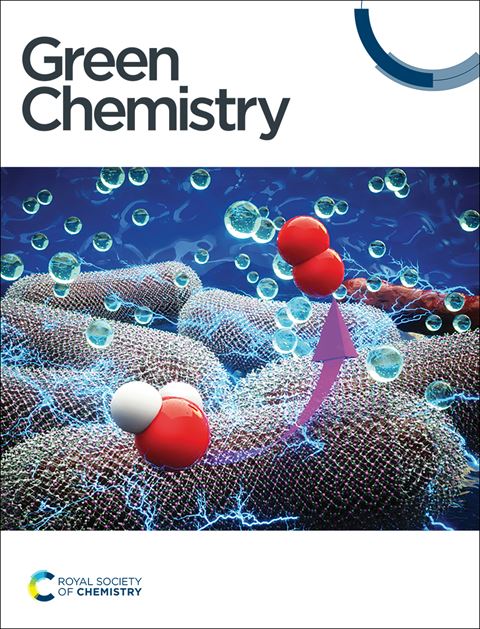Design and application of a decatungstate-based ionic liquid photocatalyst for sustainable hydrogen atom transfer reactions.
IF 9.3
1区 化学
Q1 CHEMISTRY, MULTIDISCIPLINARY
引用次数: 0
Abstract
A recyclable decatungstate-based ionic liquid (DT-IL) was developed as a versatile photocatalyst for hydrogen atom transfer reactions. DT-IL exhibits broad solvent compatibility, high catalytic efficiency, and excellent recyclability. Its performance under batch and flow conditions, including in green and biphasic media, highlights its potential for sustainable photocatalysis.
十钨酸盐基离子液体光催化剂的设计与应用。
研制了一种可循环利用的十钨酸盐离子液体(DT-IL)作为氢原子转移反应的多功能光催化剂。DT-IL具有广泛的溶剂相容性,高催化效率和良好的可回收性。它在间歇和流动条件下的性能,包括在绿色和双相介质中,突出了其可持续光催化的潜力。
本文章由计算机程序翻译,如有差异,请以英文原文为准。
求助全文
约1分钟内获得全文
求助全文
来源期刊

Green Chemistry
化学-化学综合
CiteScore
16.10
自引率
7.10%
发文量
677
审稿时长
1.4 months
期刊介绍:
Green Chemistry is a journal that provides a unique forum for the publication of innovative research on the development of alternative green and sustainable technologies. The scope of Green Chemistry is based on the definition proposed by Anastas and Warner (Green Chemistry: Theory and Practice, P T Anastas and J C Warner, Oxford University Press, Oxford, 1998), which defines green chemistry as the utilisation of a set of principles that reduces or eliminates the use or generation of hazardous substances in the design, manufacture and application of chemical products. Green Chemistry aims to reduce the environmental impact of the chemical enterprise by developing a technology base that is inherently non-toxic to living things and the environment. The journal welcomes submissions on all aspects of research relating to this endeavor and publishes original and significant cutting-edge research that is likely to be of wide general appeal. For a work to be published, it must present a significant advance in green chemistry, including a comparison with existing methods and a demonstration of advantages over those methods.
 求助内容:
求助内容: 应助结果提醒方式:
应助结果提醒方式:


